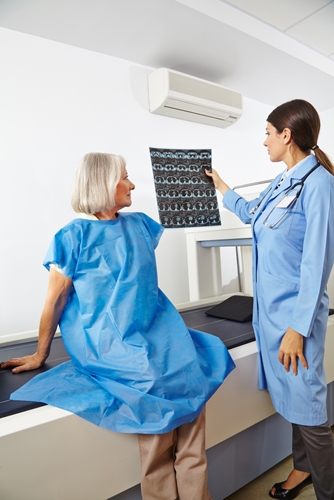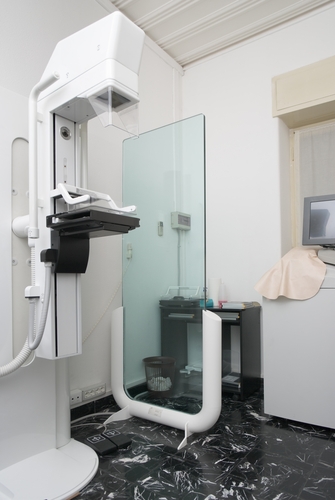The American Cancer Society's revised breast cancer screening guidelines signaled a major shift in its perception of mammography. Lost in the spectacle surrounding the new mammogram recommendations, however, was another major philosophical change concerning two widely-supported preventive measures: clinical and self-breast exams.
The ACS no longer recommends either of these tests for average-risk women. According to the new guidelines, both tests now contribute little to breast cancer detection regimens, as patient awareness and medical imaging technology have improved. The organization also asserted that clinical breast exams, in conjunction with mammography, lead to higher false-positive rates.
In the previous version of its screening guidelines, the ACS recommended that women in their 20s and 30s undergo triennial clinical breast exams, then switch to annual exams when they reach 40.
"There is simply no data to suggest that a breast exam by a healthcare provider, in addition to a mammogram, adds any benefit," Dr. Oeffinger, director of the cancer survivorship program at Memorial Sloan-Kettering Cancer Center and one of the primary crafters of the new guidelines, said in an interview with the Los Angeles Times.
Critics React
As with other parts of the revised ACS guidelines, the new recommendations regarding clinical and self-breast exams have drawn criticism from medical professionals and long-time supporters of these preventive measures.
"I am actually disappointed in that," said Dr. Benjamin Anderson, director of the Breast Health Clinic at the Seattle Cancer Care Alliance, in an interview with The Seattle Times. "The issue with clinical breast exam is that it has not been studied in the same way."
And, other preventive organizations believe the ACS recommendations on clinical and self exams are based on incomplete data that fails to address important subgroups. Bridgette Hempstead, founder of Cierra Sisters, a Seattle-based preventive organization that works with the poor, told The Seattle Times that the research behind the new ACS guidelines "does not include the underserved populations."
Conflicting Research
In 2014, a Canadian study published in the The British Medical Journal caused a kerfuffle when it questioned the value of the mammogram, reported The New York Times. Along with these revelations regarding mammography, the study included new data that touted the effectiveness of clinical breast exams, reported The Times. The research, which followed nearly 90,00 subjects over a period of 25 years, concluded clinical breast exams were just as effective as mammograms.
"I began to feel that what the trial was showing was that clinical breast exam was effective and could substitute for mammography, if it was performed well and was accompanied by the teaching of breast self-exam," Dr. Anthony Miller, one of the researchers, told The Times.
Dr. Elaine Schattner, a cancer expert and contributor for Forbes, believes the procedure, when performed by a well-trained physician, can be effective. But many modern physicians aren't effective examiners, claimed Schattner.
"The problem, broadly, is that few doctors know how to perform physical exams and, even if they did, they wouldn't have time to do them," Schattner wrote in an opinion piece for Forbes. "I must agree with the ACS authors that times have changed. It's become less likely a clinician will find a woman's tumor on physical exam."
Technology Surpasses Technique
Though the new guidelines appear to mark the final chapter in the decline of clinical and self-breast exams, they do deliver a hopeful outlook on medical imaging technology. Within its rational for the revised recommendations, the ACS stated that these tests are no longer required – mammography and other imaging techniques are now the gold standard in breast cancer detection. Schattner agreed.
"But just as I accept that reality about the lost skill of physical examination, I recognize progress in technology," she wrote in her Forbes piece. "A good-quality screening mammogram can save a woman's life.
Ronny Bachrach
Latest posts by Ronny Bachrach (see all)
- Konica Minolta Debuts First-of-Its-Kind Digital U-Arm System at AHRA - July 27, 2016
- Researchers Detect Signs Of Stroke Risk Using MRI - June 27, 2016
- Imaging Biz: Q&A with David S. Channin MD: How to Make PACS Patient Centered - June 22, 2016










